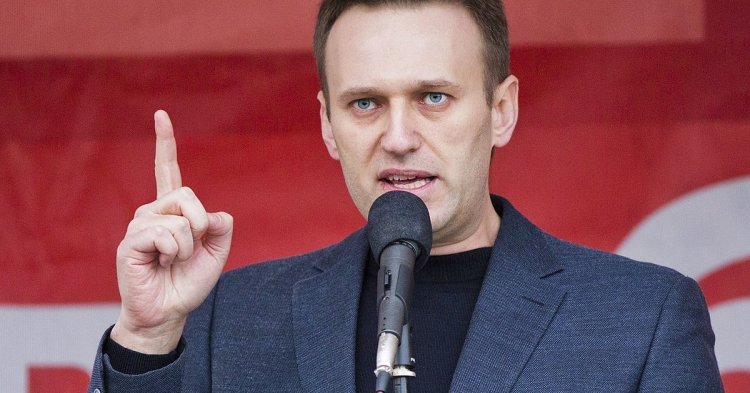While it’s certainly not the first time Navalny and his family have had to face personal hardship, last year their fight took a much darker turn. After having been poisoned with the military-grade nerve agent Novichok, he survived long enough to be transported and treated in Germany, saving his life. As soon as he stepped foot on Russian territory upon his return to Moscow five months later, Navalny was arrested – and then sentenced to 2.8 years in prison.
Amplified by the events of the past months, Navalny has become the face of the protests against Putin’s regime, not only for his core supporters, but also for many other people across Russia, who often had been at best passive spectators.
Navalny and his unjust imprisonment, however, are not the only reason for the protests of the past weeks. His attempted murder, the unlawfulness of his arrest, and more importantly, his incredible fearlessness and courage, came at the tipping point of a much wider and deeper disappointment of the Russian people. His ordeal served as a trigger for Russians to take the streets, but the seeds of discontent were sown long before.
The dramatic economic decline and social hardship that followed the Covid-19 pandemic, crowned with the lack of possibility for Russian citizens to freely express their dissatisfaction with their leadership, has finally lead your average, mostly politically-disengaged citizen to realise that Putin’s regime had gone too far, had stolen too much, had completely lost all touch with reality – and that anyone could be next on its target list.
By publishing the video of his conversation with his own would-be killer and conducting an investigation into “Putin’s largest bribe” – a luxurious palace on the Black Sea, complete with its own personal ice-hockey rink and French-style vineyard - Navalny succeeded in what no one in modern Russian history managed before him: encroaching upon the sacrality of the Russian regime. As Russian history in particular has shown, authoritarian regimes are quick to crumble when they lose their divine aura, are ridiculed, and start being seen for what they, in fact, were all along: oppressive regimes, led by crooks, for the sole benefit of the Tsar and his cronies.
Alas, there is one element that may escape the eye of Western European public opinion in this fast-paced, drama-packed, Netflix-style saga. In Russian pro-Kremlin rhetoric, any hint on the change in political leadership is often met with the question “If not Putin, then who?”. Just as frequently, Navalny supporters will ask a similar question: “If not Navalny, then who (...could bring democracy to Russia)?” While both of these questions are quite valid in the current political climate in Russia, the real question is how could we build a pluralistic democratic system, where those questions will not matter to anyone?
Since becoming President in 2000, Vladimir Putin has slowly but steadily eroded political pluralism and any chance of fair electoral competition. He has spread cement over the Russian political ground, so that the seeds of talented and motivated politicians could never grow. In such a political reality, it is close to a miracle that Alexei Navalny rose up to political and public prominence. While relying on a quite small support base, compared to the size of the country, he managed to bring people on the streets in 2011, and has kept doing so for the past 10 years. However, until now, many of those who wish to live in a free and democratic Russia, did not align behind Navalny and his team, quoting his nationalistic views [1] and fearing they would just be putting a different face to the same regime. Then, in August 2020, he was poisoned. Then again, sentenced to prison in a court case, which the European Court of Human Rights ruled was fundamentally unfair.
Russia has come to a point where it does not matter whether one supports Alexei Navalny as a politician or not. The fight for Navalny has, in fact, become the fight for “a Navalny”. From the fight for a Russia where Navalny would be President, this has transformed into a fight for the possibility that, in Russia, even someone like Navalny could be President. Not a fight in pursuit of political power, but a fight for a free and democratic Russia.
A Russia where political pluralism exists. A Russia where anyone can express their opinion without the fear of being arrested or sent to prison. A Russia where Alexei Navalny is free and speaking to millions from the electoral tribune, rather than a prison cell, is a Russia where the cement has been uprooted and fertile ground has opened for other seeds to grow. Supporting his fight today means supporting the fight for a free Russia, where anyone can run for elections and promote their political opinions. I hope that one day we will get to see that - not a President Navalny, but a plurality of real parties and candidates in Government and Opposition, debating real matters and striving to make Russian citizens better off economically, socially, and politically, through democratic institutions and processes.
What happens next – no one can say. And I can only hope that Navalny’s and his family’s sacrifice for a better future for Russia mark the beginning of the end. The end of one-man regimes, no matter who this man is.

Follow the comments: |
|
